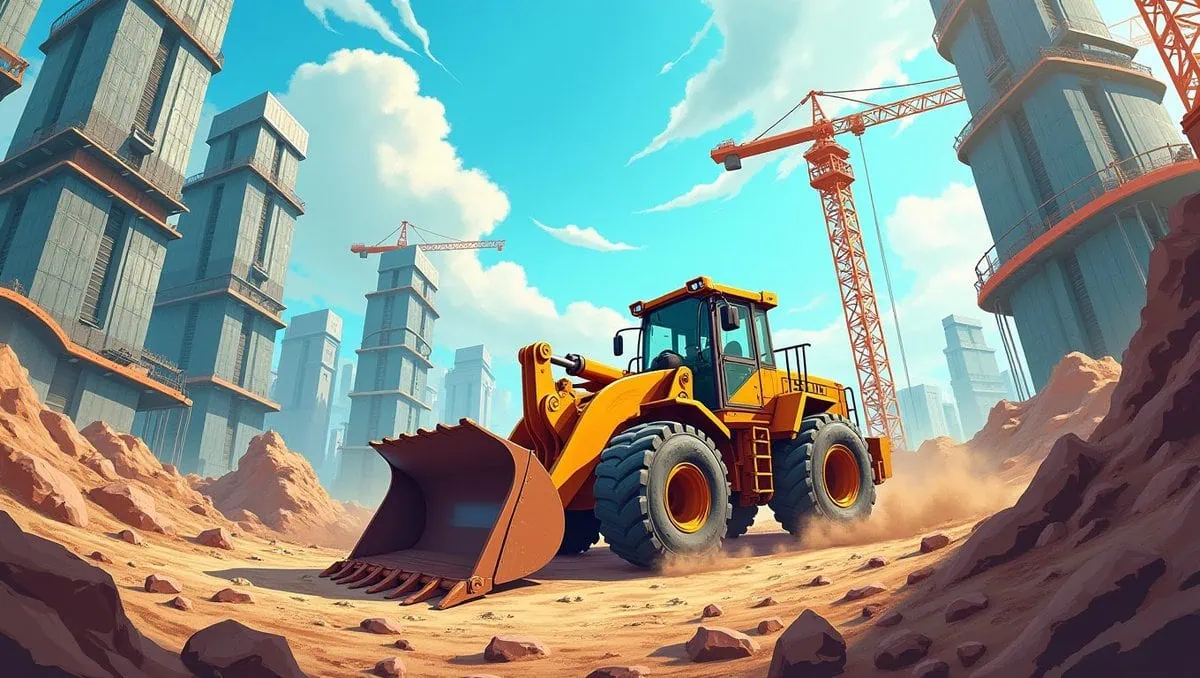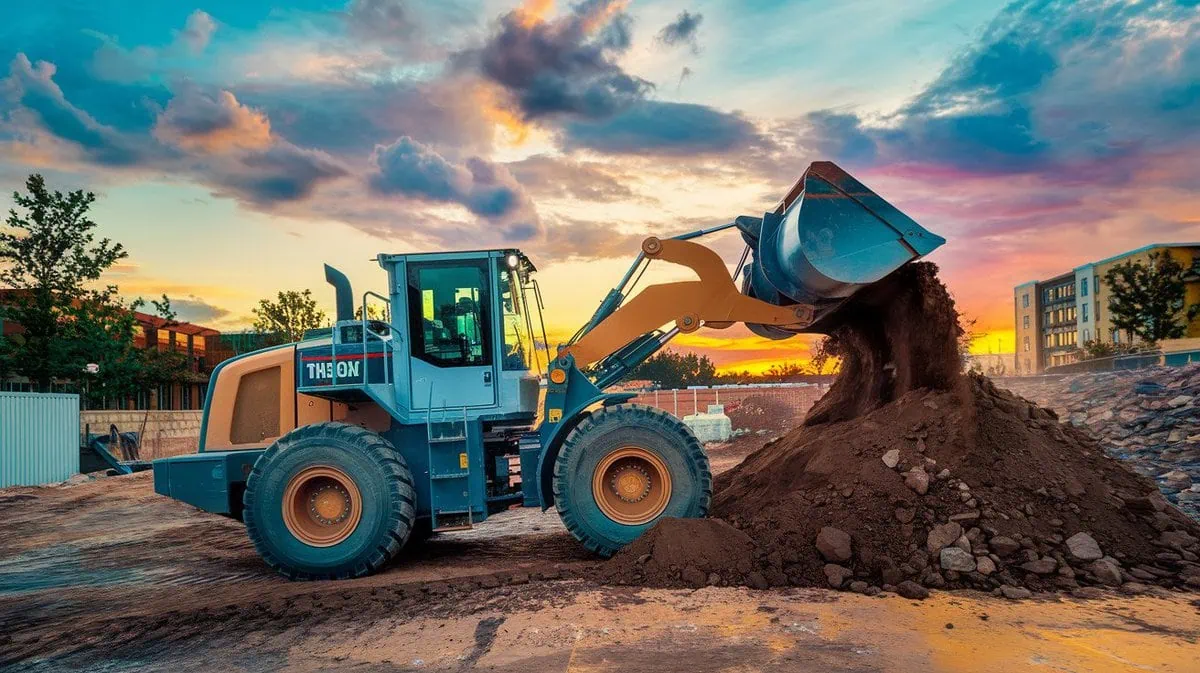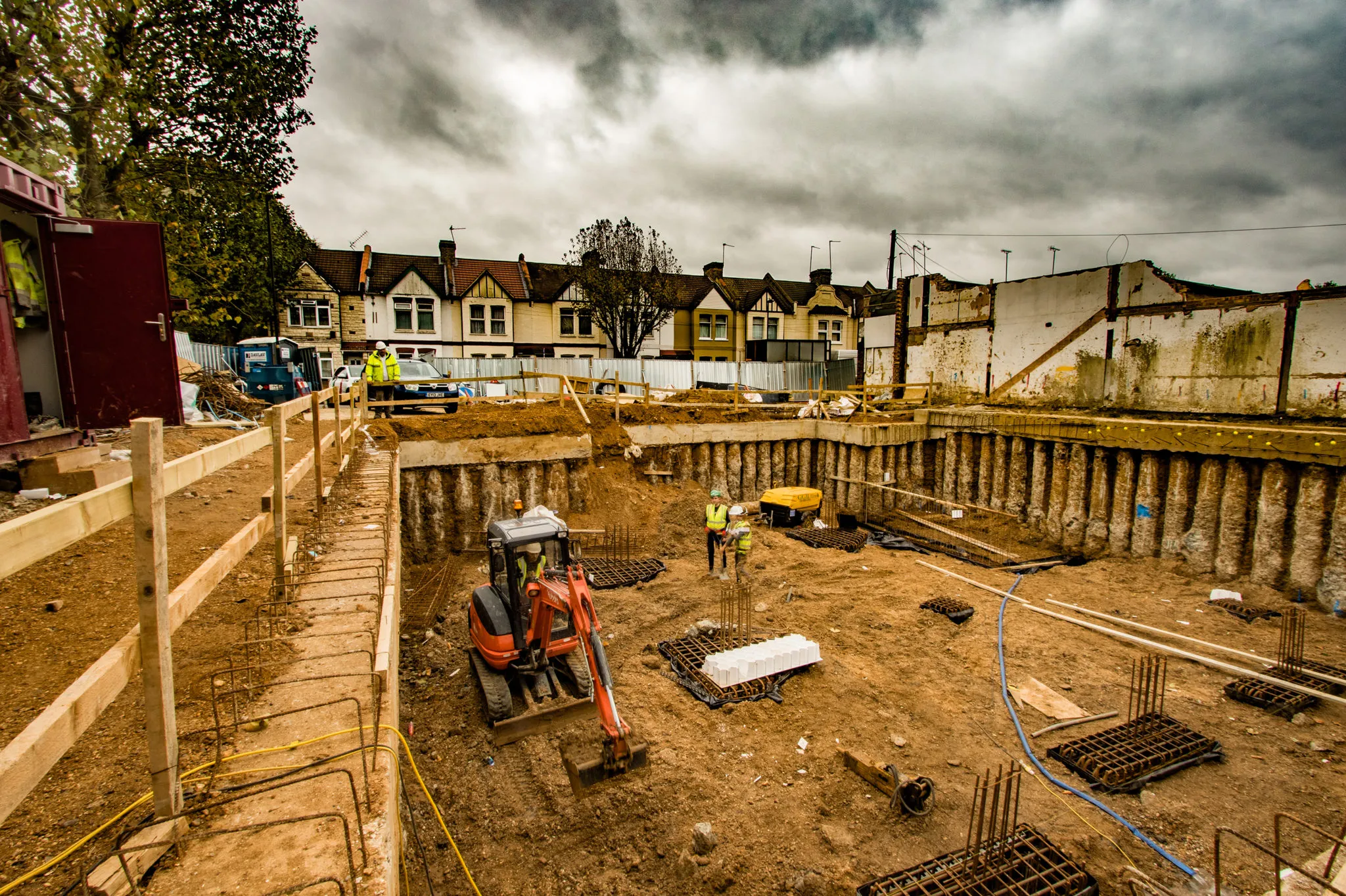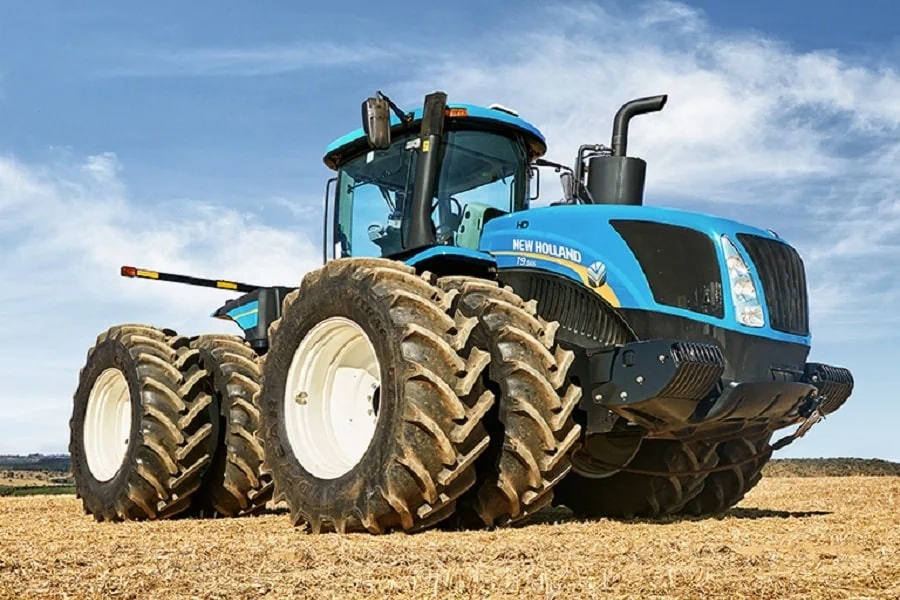An excavator is a multi-functional piece of construction machinery that can be paired with a compatible excavator bucket for each project task such as digging, grading, and clearing. In the infographic below, we’ll explore the 7 most common types of excavator buckets to help you choose the right one for the job.
7 Common Excavator Bucket Types

1. Digging Bucket (Standard Bucket)
The digging bucket, often referred to as the standard bucket, is the most commonly used attachment for excavators. This bucket is designed for general-purpose excavation tasks, making it the go-to choice for a wide range of jobs.
- Broad and curved design
- Ideal for digging through standard soil types
- Available in various sizes to match different excavator models
2. Rock Bucket
When you’re dealing with hard, rocky terrain, a rock bucket is the perfect solution. This bucket is specifically designed to handle heavy-duty materials like rocks, debris, and compacted soil.
- Reinforced structure with thicker steel
- Strong teeth for breaking through tough materials
- Often features a heavier design for extra durability
3. Grading Bucket
The grading bucket is designed for tasks that require precision, such as leveling and smoothing out soil or materials. It is particularly useful in construction projects that demand a smooth, uniform surface.
- Flat design with a shallow profile
- Straight edge for creating a smooth, even surface
- Often features additional reinforcement for durability
4. Ditch Cleaning Bucket
A ditch cleaning bucket is designed for cleaning and maintaining ditches, culverts, and drainage systems. Its specialized shape allows it to work efficiently in tight, confined spaces.
- Narrow and long with a deep, curved design
- Built for precision digging in restricted spaces
- Often features additional teeth for cutting through stubborn materials
5. Trenching Bucket
When you need to dig narrow, deep trenches for utilities, pipes, or foundations, the trenching bucket is your best option. This bucket is designed specifically for trenching and can handle the tough job of digging precise channels.
- Narrow, deep design for digging trenches with precise width and depth
- Sharp teeth to cut through soil and compact materials
- Available in various sizes to match trenching needs
6. Skeleton Bucket
The skeleton bucket is perfect for sifting through materials to separate unwanted debris or rocks from the soil. Its open-frame design allows small materials to pass through, leaving larger materials behind.
- Open-frame design with wide gaps between bars
- Lightweight construction for easy sifting
- Great for separating rocks or large debris from soil
7. Clean-up Bucket
After heavy excavation work, the clean-up bucket helps clear up any remaining loose materials, leaving the site ready for the next phase of construction or landscaping. It is designed to scoop up debris quickly and efficiently.
- Shallow and wide design for fast and efficient debris collection
- Lightweight, often featuring smooth sides to reduce material sticking
- Can handle various types of debris, including dirt, gravel, and small rocks
Comparison of 7 Common Types of Excavator Buckets
| Bucket Type | Beschreibung | Best Used For |
|---|---|---|
| Digging Bucket (Standard Bucket) | General-purpose bucket with a broad, curved design. | Trenching, landscaping, and excavation of loose materials. |
| Rock Bucket | Reinforced bucket with thick steel and strong teeth for heavy-duty tasks. | Mining, quarrying, demolition, and rocky ground excavation. |
| Grading Bucket | Flat, shallow design for precise leveling and grading. | Road construction, parking lot preparation, landscaping. |
| Ditch Cleaning Bucket | Narrow, long, deep design for cleaning ditches and drainage systems. | Drainage maintenance, clearing culverts, roadwork. |
| Trenching Bucket | Narrow and deep with sharp teeth for precise trenching. | Installing utilities, digging utility trenches. |
| Skeleton Bucket | Open-frame design for sifting and separating debris from soil. | Land clearing, recycling, and material separation. |
| Clean-up Bucket | Shallow, wide design for collecting loose debris and dirt. | Post-excavation cleanup, construction, demolition sites. |
Abschluss
Different types of excavator buckets have other functions, whether it is leveling the ground, digging foundations, cleaning ditches, etc. You can choose the right bucket for the work, not only to improve the efficiency of the work, but also greatly reduces the purchase of equipment, you only need to buy a bucket to complete different tasks.
Call To Action
If you’d like to learn more about the infographic, click on the infographic to see more in our website.






